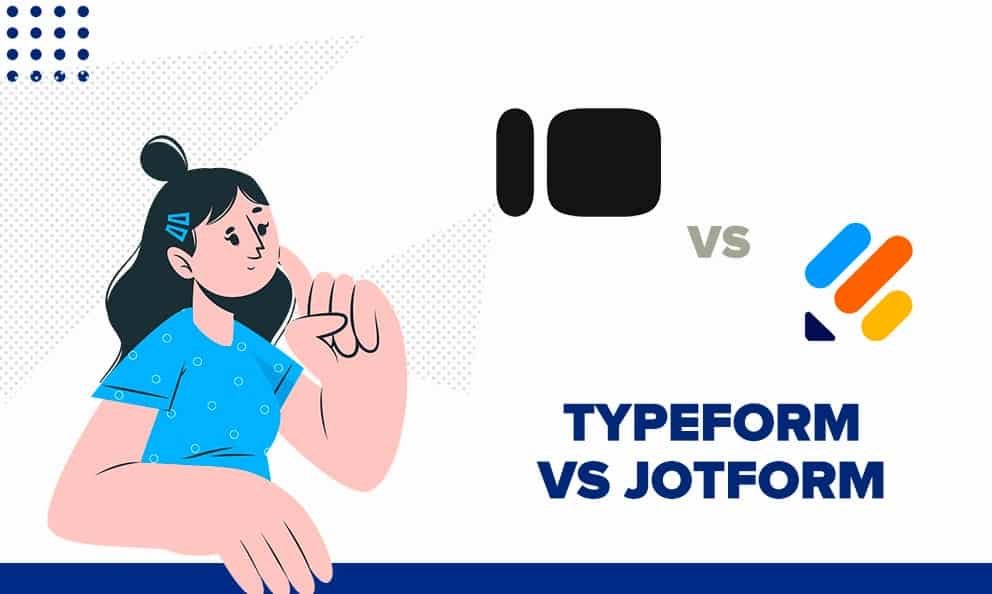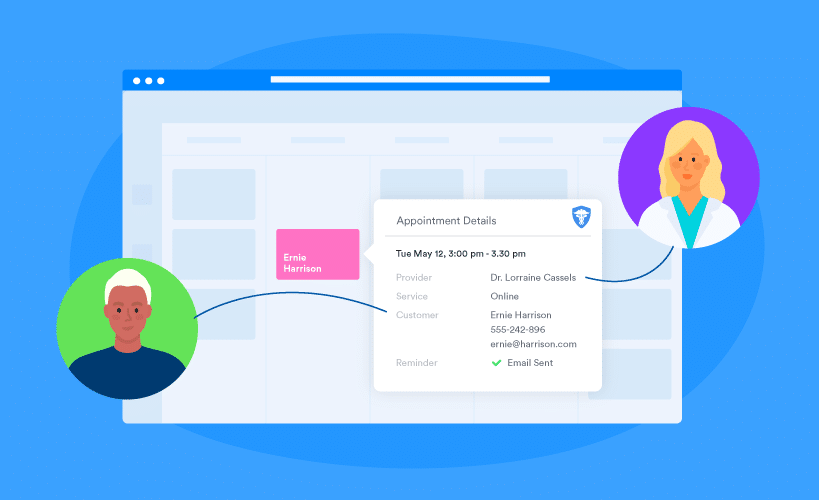Project management can be tough for small businesses. The right tools make it easier.
Small businesses often juggle many tasks at once. Without proper organization, things can quickly get out of hand. That’s where project management tools come in handy. These tools help you keep track of tasks, deadlines, and team collaboration. They can save time and reduce stress.
Picking the best tools can boost productivity and efficiency in your small business. In this blog, we will explore the top project management tools tailored for small businesses. Whether you’re a startup or a growing company, there’s something here for you. Let’s dive in and find the perfect tool to streamline your projects.

Credit: blog.teamwave.com
Trello
Trello offers intuitive project management for small businesses. Its visual boards and simple interface make task tracking easy. Great for team collaboration.
Trello is a highly visual project management tool that’s perfect for small businesses. With its easy-to-use interface and flexibility, Trello helps you and your team stay on top of tasks and projects. Whether you are managing a marketing campaign or planning your next big product launch, Trello can help you keep everything organized.Key Features
Trello uses boards, lists, and cards to help you organize your projects. You can create a board for each project and lists for different stages of the project. Within these lists, you add cards for individual tasks. Each card can be assigned to team members, given due dates, and labeled for priority. You can also attach files, add checklists, and leave comments to keep everyone on the same page. It integrates with other tools like Slack, Google Drive, and Dropbox, making it even more powerful.Pros And Cons
Pros:- Easy to use and intuitive interface.
- Highly visual, which makes tracking progress simple.
- Great for team collaboration.
- Customizable boards to fit your specific needs.
- Limited features in the free version.
- May not be suitable for very complex projects.
- Can become cluttered with too many cards.
Pricing
Trello offers a free version that includes basic features. The Business Class plan costs $10 per user per month and adds features like advanced checklists and integrations with other apps. For larger teams, the Enterprise plan offers enhanced security and admin features and costs $20.83 per user per month. — Trello is a great tool for small businesses looking to keep their projects organized. Have you tried Trello? What was your experience like? Feel free to share your thoughts in the comments!
Credit: projectwidgets.com
Asana
Asana simplifies task management for small businesses. Its user-friendly interface helps teams stay organized and meet deadlines. Ideal for collaboration.
Asana is one of the most popular project management tools, especially among small businesses. It’s designed to help teams organize their work, track progress, and collaborate more effectively. Whether you’re managing multiple projects or just trying to stay on top of daily tasks, Asana offers a user-friendly interface that makes project management a breeze.Key Features
Asana is packed with features that can make managing projects smoother. You can create tasks, set deadlines, and assign them to team members. The project timeline view helps you see the big picture and track progress visually. With the calendar feature, you can easily track deadlines and ensure everything is on schedule. Customizable project templates save time on setup, and integrations with other tools like Slack and Google Drive streamline your workflow.Pros And Cons
Pros:- User-friendly interface that’s easy to navigate
- Great for team collaboration with real-time updates
- Offers a free version with essential features
- Can be overwhelming for beginners due to many features
- Premium features can be pricey for very small teams
- Limited customization options in the free version
Pricing
Asana offers a free version that includes basic features suitable for small teams. The Premium plan starts at $10.99 per user per month, offering advanced features like timeline view and custom fields. For larger teams or businesses needing more robust features, the Business plan is available at $24.99 per user per month. It includes advanced integrations, custom rules, and more. Have you ever tried using Asana for your small business projects? What features stood out to you? Share your thoughts in the comments below!Monday.com
Monday.com is a versatile project management tool that has gained popularity among small businesses. It offers a user-friendly interface, making it easy for teams to collaborate and manage projects efficiently. Whether you are tracking tasks, deadlines, or team progress, Monday.com is designed to streamline your workflow.
Key Features
Monday.com boasts a range of features that can be tailored to fit your business needs. Some of the key features include:
- Customizable Templates: Use ready-made templates or create your own to suit specific project requirements.
- Visual Boards: The visual boards allow you to see project progress at a glance, making it easy to identify bottlenecks.
- Integrations: Connect Monday.com with other tools like Slack, Trello, and Google Drive to centralize your workflow.
- Automations: Automate repetitive tasks to save time and reduce errors.
- Time Tracking: Keep track of how much time is spent on each task to improve productivity.
Pros And Cons
Like any tool, Monday.com has its strengths and weaknesses. Here are some pros and cons to consider:
| Pros | Cons |
|---|---|
| Intuitive and easy to use. | Can be pricey for small teams. |
| Highly customizable. | Learning curve for advanced features. |
| Strong integration capabilities. | Some users find the interface cluttered. |
| Excellent customer support. | Limited offline access. |
Pricing
Monday.com offers several pricing plans to accommodate different business sizes and needs:
- Free Plan: Basic features for individuals and small teams.
- Basic Plan: $8 per user/month, offering more features and integrations.
- Standard Plan: $10 per user/month, ideal for growing businesses.
- Pro Plan: $16 per user/month, includes advanced features and automations.
- Enterprise Plan: Custom pricing for large organizations with specific needs.
Have you ever felt overwhelmed by managing multiple projects simultaneously? Monday.com might be the solution you need. Its ability to simplify complex workflows can be a game-changer for your business. Try it out and see how it can enhance your project management process.
Basecamp
Basecamp offers an easy-to-use platform for small businesses to manage projects efficiently. It helps teams collaborate and stay organized.
Basecamp is a popular project management tool for small businesses. It helps teams stay organized and communicate effectively. With its simple interface, Basecamp is user-friendly and efficient.Key Features
Basecamp offers several key features. The to-do lists help track tasks. Message boards allow team discussions in one place. Schedule events and deadlines with the built-in calendar. The document and file storage keeps all important files accessible. Real-time group chat keeps everyone connected.Pros And Cons
Basecamp has many pros. It is easy to use. The interface is clean and simple. Team communication improves with message boards and chat. The file storage feature keeps documents organized. There are some cons too. Basecamp may lack advanced project management features. It might not suit larger teams. The pricing can be high for very small businesses.Pricing
Basecamp offers a flat pricing plan. It costs $99 per month. This includes unlimited users and projects. There is also a free plan for teachers and students. Non-profits can get discounts.Wrike
Wrike offers robust project management tools tailored for small businesses. Collaborate seamlessly, track progress, and meet deadlines efficiently. Enhance productivity with intuitive features and user-friendly interface.
Wrike is a powerful project management tool that caters to small businesses. It’s designed to help teams collaborate efficiently and stay on top of their tasks. With its user-friendly interface and robust features, Wrike can be a game-changer for your business operations.Key Features
Wrike offers a variety of features that can benefit small businesses. You can easily create tasks and assign them to team members. The custom workflows feature lets you tailor your processes to suit your business needs. Time tracking is another valuable feature. It helps you monitor the time spent on each task, ensuring your projects stay on schedule. The integrated Gantt charts provide a visual timeline of your projects, making it easy to spot any delays. Wrike’s real-time collaboration tools are impressive. The document sharing and editing capabilities ensure everyone is on the same page. Additionally, Wrike integrates seamlessly with other tools like Google Drive and Slack, making it a versatile choice.Pros And Cons
Pros: – User-friendly interface: Wrike is easy to navigate, even for those new to project management tools. – Customizable workflows: Tailor processes to fit your specific business needs. – Integration capabilities: Easily connects with other commonly used business tools. Cons: – Steep learning curve: Some features may require time to master. – Cost: Can be pricey for very small teams. – Overwhelming for simple projects: May offer more features than necessary for straightforward tasks.Pricing
Wrike offers several pricing plans to accommodate different business sizes and needs. The Free plan is available but is quite limited in features. The Professional plan starts at $9.80 per user per month and includes more advanced tools. For businesses that need comprehensive features, the Business plan costs $24.80 per user per month. There’s also an Enterprise plan for larger organizations, with custom pricing based on specific requirements. Is investing in a tool like Wrike worth it for your small business? Consider how much time and efficiency it can bring to your team. What project management challenges are you facing that Wrike might solve? Thinking about these questions can help you make an informed decision.Jira
Jira ranks among the best project management tools for small businesses. It offers task tracking and collaboration features that streamline workflows. Easy to use, it boosts team productivity effectively.
Are you tired of juggling multiple tasks and feeling overwhelmed with managing your small business projects? Jira might be the solution you’re looking for. This powerful tool, created by Atlassian, is designed to help teams plan, track, and manage their work efficiently. Let’s dive into the specific features, benefits, and costs of using Jira.Key Features
Jira offers a comprehensive set of features tailored for different types of projects. You can create user stories and issues, plan sprints, and distribute tasks across your team. This makes it easier to track progress and identify bottlenecks. One of the standout features is its customizable workflows. You can adapt Jira to fit your team’s specific processes. This flexibility ensures that you aren’t forced into a one-size-fits-all approach. Additionally, Jira integrates seamlessly with other tools like Confluence, Bitbucket, and Trello. This ensures you can keep all your project-related information in one place.Pros And Cons
Every tool has its strengths and weaknesses. Here’s a quick overview of Jira’s pros and cons: Pros: – Customizable Workflows: Tailor the tool to suit your team’s unique needs. – Integration Capabilities: Connect easily with other popular tools. – Robust Reporting: Gain insights with detailed reports and dashboards. Cons: – Complexity: Might be overwhelming for small teams with simpler needs. – Learning Curve: Takes time for new users to get up to speed. – Cost: Can be expensive for very small businesses.Pricing
Jira offers various pricing tiers to cater to different business sizes and needs. The free plan is a good starting point for small teams. It includes up to 10 users and essential features. For growing teams, the Standard plan costs $7.50 per user per month and includes additional features like audit logs and user roles. The Premium plan, at $14.50 per user per month, offers advanced roadmaps and 24/7 support. If your team is scaling rapidly or requires enterprise-level features, the Enterprise plan is available, but pricing is customized based on specific needs. Have you tried Jira for your small business? How did it change the way you manage projects? Share your experiences in the comments below!
Credit: zapier.com
Frequently Asked Questions
Which Project Management Tool Is Best For Small Business?
Trello is the best project management tool for small businesses. It’s user-friendly, affordable, and highly customizable. Trello helps teams organize tasks efficiently.
What Is The Best Project Management Tool For Beginners?
Trello is the best project management tool for beginners. It’s user-friendly, visually intuitive, and offers a free plan.
What Are The 5 C’s Of Project Management?
The 5 C’s of project management are Communication, Collaboration, Commitment, Competence, and Control. They ensure project success and efficiency.
Does Office 365 Have A Project Management Tool?
Yes, Office 365 includes Microsoft Planner, a project management tool. It helps teams organize tasks and collaborate efficiently.
Conclusion
Choosing the right project management tool is crucial. It helps streamline tasks and boost productivity. Small businesses benefit greatly from effective tools. They simplify workflows and improve team collaboration. Test a few options to find the best fit. Remember, your business needs may change.
Stay flexible and keep exploring new solutions. Happy project managing!





